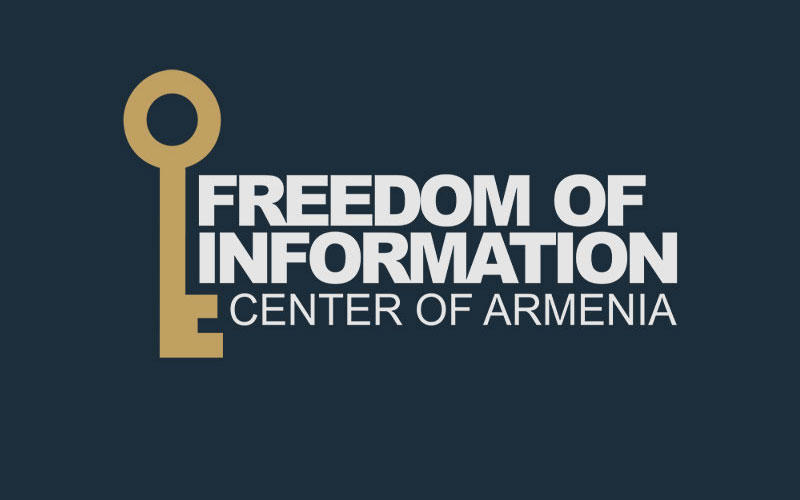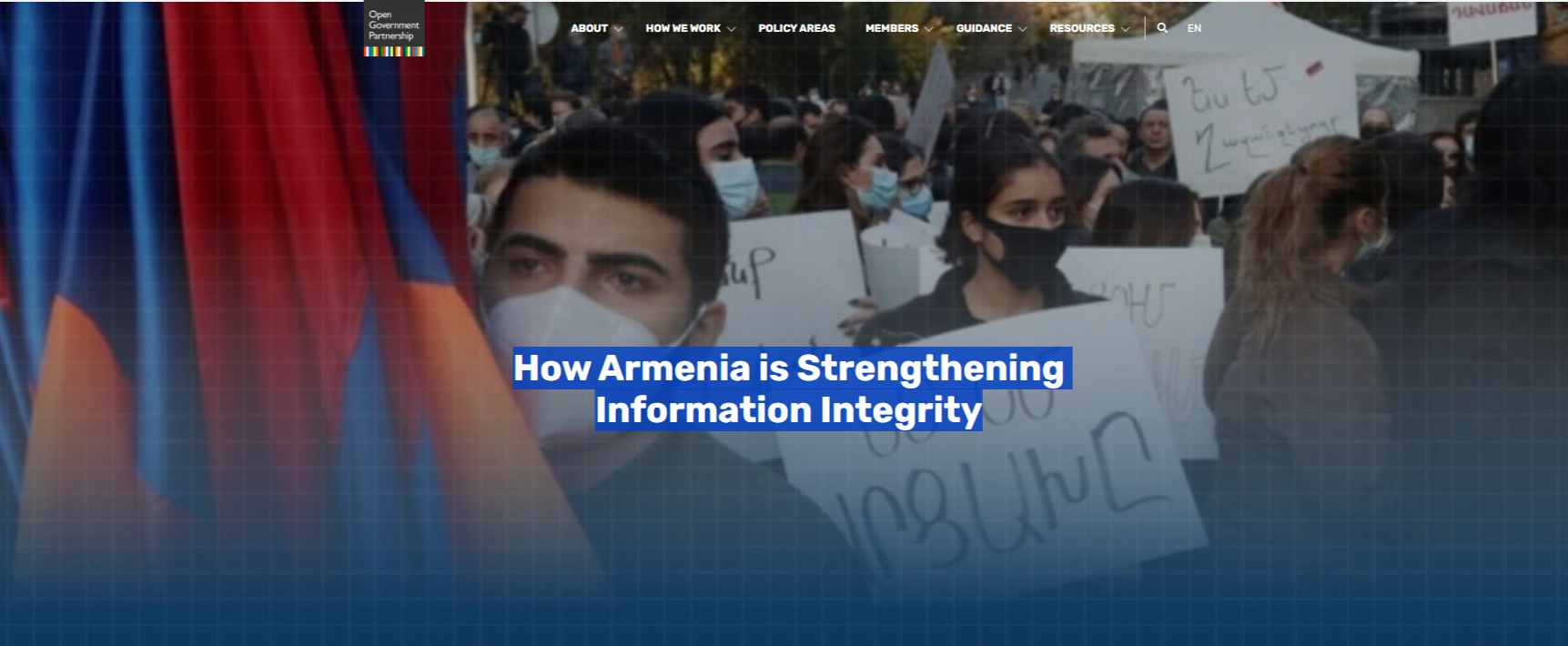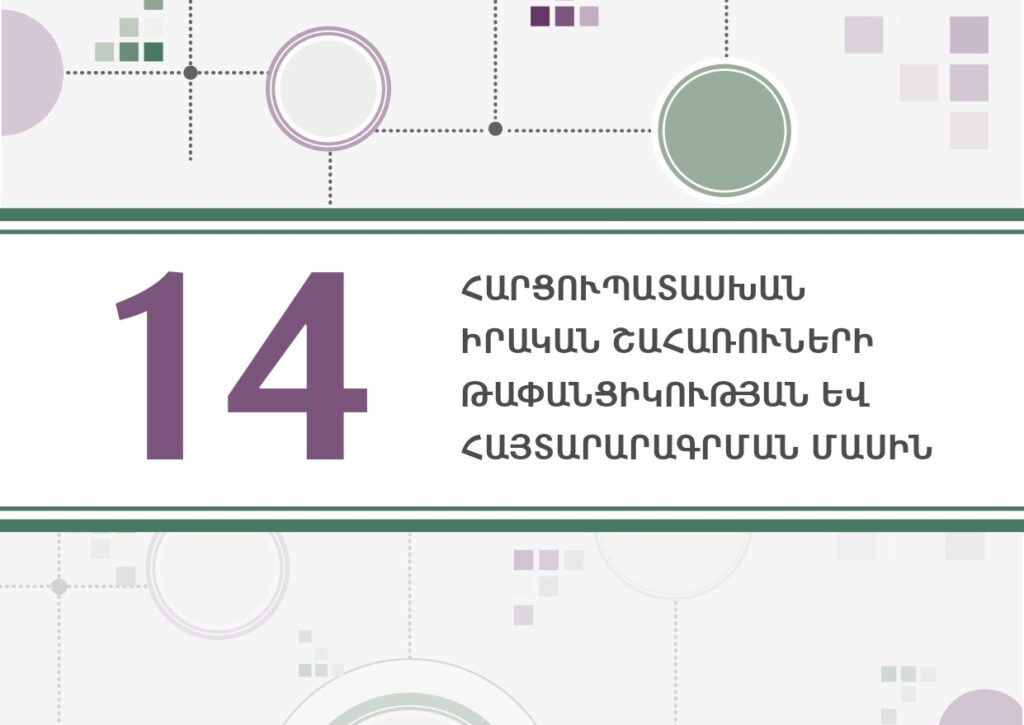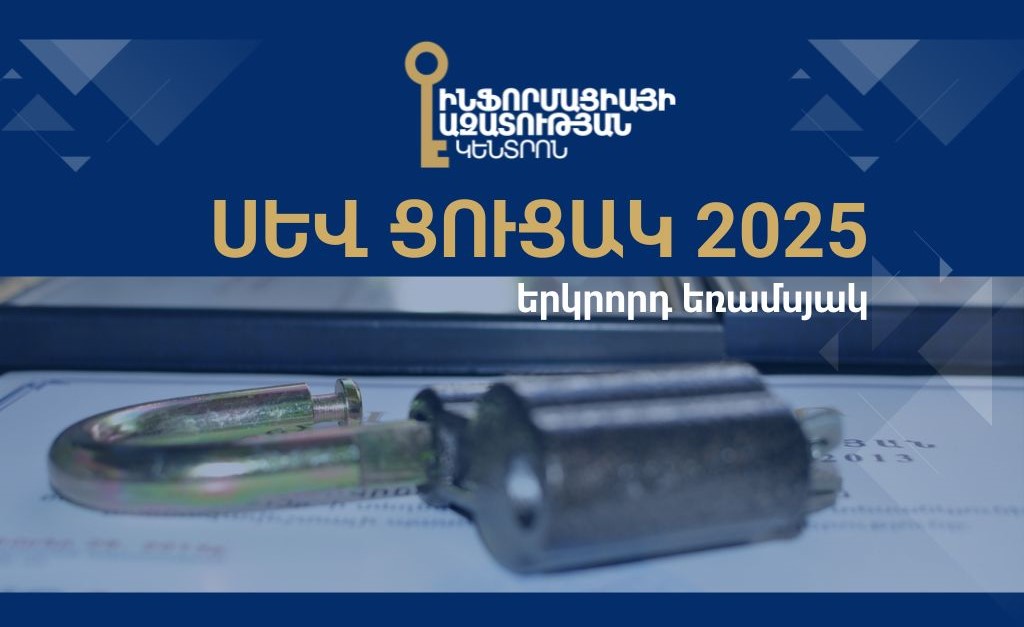Interview with Shushan Doydoyan, president of the FOI Center
FOI – First, allow me to congratulate you on the unprecedented court decision. Was this decision a surprise to you, or did you expect it?
SH. D. -We have been waiting for this verdict for 5.5 years. Ever since 2003, when the administrative legislation introduced responsibility for violating the freedom of information right, the FOI Center has been trying to implement that provision of the law, but without luck. We have filed more than 30 lawsuits since that day, but only in May 2009 did we manage to get a 50,000 AMD administrative fine imposed on an official for violating the requirements of the RA Freedom of Information Law in the case against the Yelpin village municipality.
FOI – You have always said in your interviews that the number of groundless denials of information requests will decrease drastically as soon as the issue of administrative responsibility for officials is resolved. Do you think the Yelpin precedent will have a sobering effect on officials in terms of providing information?
SH. D. -This precedent will shape the development of judicial practice in the area of freedom of information in the near future. Prior to this, courts had been reluctant to uphold our lawsuits demanding administrative responsibility. However, I am confident that judge A. Poghosyan managed to break the old stereotype of fear in favor of human rights. Without a good judicial system, all calls for human rights protection are futile, and a good judicial system will develop thanks to such fair and knowledgeable judges. I have always been convinced that officials will not sober up until you hit their pockets for working in secrecy and closed fashion. Now they did hit their pockets and it will definitely have a decisive role.
FOI - An examination of the FOI Center’s court cases reveals an interesting picture: your requests for information were left unanswered by community leaders who later have been mentioned in the Control Chamber’s reports. Is this a coincidence, or did community leaders refuse to provide information in order to cover up corruption?
SH. D. -If an official hides information, it can mean two things: either the official is not aware that working openly and providing information to the public is one of his/her most important responsibilities, or he/she is trying to hide his/her illegal actions. Our experience shows that the second scenario is more common: officials do not provide information, because they are afraid that their abuses and embezzlement will become public, and these things are later discovered by the Control Chamber during its inspection. For example, in one of the villages, Talvorik, whose municipality we have sued in April, inspections during the month of June revealed major embezzlement. We had asked a copy of last year’s budget and budget implementation report, as well as copies of village council decisions. Naturally, the community leader could not have provided such information, because his embezzlement would have become known.
FOI – The process of dissolution of state non-commercial organization started at the time when the FOI Center filed a lawsuit against it. Do you think the dissolution had anything to do with the judicial process?
SH. D. – This is a brilliant example of the second scenario I mentioned. Information is being withheld in order to hide corruption. We had asked the state non-commercial organization how much state budget financing it received in 2006, 2007 and 2008, as well as for other financial information. The organization replied that this information constitutes commercial secret. We went to a court. In fact, they couldn’t provide this information to us. Now they are trying to protect the secrecy of that information at any cost. First the director of the state non-commercial organization was dismissed, and then they hurried to dissolve the organization in a court of law. However, the process is still ongoing. I am confident we will be able to open up those documents and show facts of embezzlement of state budget to the public.
FOI – Black lists, judicial processes, administrative responsibility… What mechanism would make it possible to ensure full openness and transparency?
SH. D. – All the mechanisms you mentioned are elements of public control. The demand should come from the entire society and not only from one or two organizations or individuals. Unless the society demands the government and local self-governance agencies to work openly and to be accountable, the authorities will never be willing to work openly.
FOI – A new freedom of information legislation package is being developed today? What are some of the issues that made it necessary to amend the law?
SH. D. – The first and the most important gap was the lack of secondary legislation, which the law required to be passed, but which hasn’t been passed in the last six years. This lack of secondary legislation creates obstacles for the exercise of the freedom of information right. It is also necessary to strengthen and clarify the norms providing for administrative responsibility, because the fact is that the only time in the last six years we managed to get administrative responsibility imposed on an official for violating the FOI Law was only recently, in July. At the same time, some significant issues are still not regulated by law. For example, these include conditions for the accepting and processing of requests for information, procedures and conditions of payment for the provision of information, forms and conditions of pro-active publication of information, etc. The defining of these issues would improve the freedom of information practice in the Republic of Armenia quite significantly. Legislative amendments should take place only as a result of active public discussions and public participation. This is the Center’s policy.











